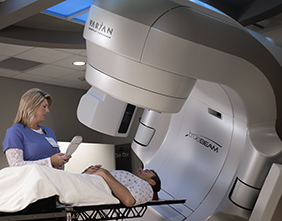Corporate Compliance/Fraud and Abuse Policy
LIMA MEMORIAL HEALTH SYSTEM POLICY 930
EFFECTIVE: 04/12/01
LATEST REV: 05/17
TITLE: CORPORATE COMPLIANCE PLAN (FRAUD, WASTE, AND ABUSE PREVENTION AND DETECTION)
Lima Memorial Health System (Lima Memorial Hospital and Lima Professional Corporation) Compliance Plan was developed in May of 1998. It's purpose is to detect and prevent violations of the law and promote a culture that encourages a commitment to compliance.
I. BENEFITS OF THE PLAN
- Demonstrates a commitment to honest and responsible corporate conduct
- Provides an accurate view of Associate and contract behavior relate to fraud, waste, and abuse
- Identification and prevention of criminal and unethical conduct.
- Tailors compliance to the system's specific needs
- Creates a centralized source for distribution of information
- Develops a methodology that encourages Associates to promptly report potential problems
- Develops procedures for investigating alleged misconduct, and initiating immediate and appropriate corrective action
- Reduces the hospital's exposure to damage, penalties, and sanctions by early detection and reporting
II. ESSENTIAL ELEMENTS OF THE PLAN
- Organization must issue standards of conduct and internal control systems that are reasonably capable of reducing the prospect of criminal activity. All directors, officers, employees, and affiliated contractors (referenced collectively as associates). All associates will review and sign the Code of Conduct Agreement upon hire and all associates will sign on with his or her annual performance evaluation. The signed agreement will be maintained either in the Human Resource associate file or in the Medical Staff office for providers. A memorandum shall be submitted by an Associate to the Lima Memorial Health System Compliance Officer promptly upon considering or engaging in any activity that is in conflict, or possible conflict, with the code of conduct or corporate compliance plan that has not been previously reported. Any non-salaried Associate, who becomes salaried, on a permanent or temporary basis, will be required to complete the Associate Certification Statement within ninety (90) calendar days of assuming that position or role. The Board of Trustees demonstrates support of the compliance plan in writing on an annual basis.
Written code of conduct -- language has been added to include the failure to report a suspected fraud and abuse. Failure to report will be addressed with HR and in a manner consistent with ADM 330, Corrective Counseling. - Designation of a Chief Compliance Officer (CCO)- The executive team will assign a CCO and this position will be a member of the administrative team. The CCO has the authority to communicate personally with the board promptly on any matter involving criminal or potential criminal conduct. Departments providing reimbursable services or bill and code those services, will identify and maintain a liaison. Liaisons will receive additional training.
Monitoring and auditing to evaluate effectiveness evaluations of the compliance program and to detect any criminal conduct are required. -- Each member of the Compliance Committee must turn in audits performed in his/ her department to show that risk areas are being monitored and problems are being identified, reported and corrected. Corporate Compliance Committee Members include members of Administration and the senior management team. - Education and training programs -- Computer Based Training, Compliance policies and procedures, special education for coders, billers and those entering outpatient orders or answering the Compliance hotline. Compliance training is a required element of an effective compliance program for all Associates, leaders, and governance. The OIG requires annual Compliance Training. Training will be maintained a minimum of 10 years.
- A process for the workforce to anonymously or confidentially seek guidance regarding potential criminal conduct without fear of retaliation. A hospital Compliance hotline has been created. A call can be made to the hotline, 998-4499, which is a non-caller ID line, and the person making the call will remain anonymous. Incident Reports may also be used to report problems. Self-reporting and seeking advice to do the right thing is encouraged. Reporting will not result in retaliation of any form.
- A system to respond to allegations -- Allegations are forwarded to the Compliance Officer for investigation, action and follow-up. The problem may be assigned to the department Director or to an outside reviewer. All allegations will be referred to legal ASAP and prior to seeking outside review. All allegations will be documented on the compliance log and efforts shall be made to complete the investigation in less than 45 days.
Perform on-going risk assessments of the likelihood of compliance violations occurring and the use of the results to: Modify other components of the effective plan, prioritize compliance efforts and resource allocations.
Investigation and remediation of problems -- There is investigation and remediation of problems through the monitoring process, as well a follow-up from Hotline calls and Incident Reports. - Enforcement efforts will be coordinated with the HR department to ensure discipline is fair, equitable and consistent with all other health system policies.
Exclusion of sanctioned individuals -- Before hiring and at least monthly, a check is made to assure that associates have not been sanctioned by the state or federal government. - All confirmed offenses will have a corrective action plan approved by the CCO and legal counsel. The CCO will serve as the primary contact in order to establish documentation of all correspondence and corrective actions are implemented in a timely manner. Confirmed allegations must be reported to the appropriate agency in a timely manner not to exceed 60 days.
III. Governance/Leadership Role
- Corporate Compliance Committee Members include members of Administration and business unit leaders at most risk for noncompliance.
- Leadership must be knowledgeable about the content & operations of the program. Additionally, managers and directors must remain current in respect to the rules, laws, and trends applicable to their business unit.
- Governance must be similarly knowledgeable and exercise oversight of implementation & effectiveness of the compliance program.
- High level responsible persons for compliance must report directly to governance re: effectiveness and operations of the compliance program on at least an annual basis.
- Knowledge to include: Major risks of unlawful conduct, primary compliance program features to address those risks, and types of compliance problems encountered.
- Exercise effective oversight by: Proactive information seeking in regard to compliance problems, evaluating information received, monitoring implementation & effectiveness of responses to problems.
IV. Risk Areas
Hospital Risk Areas:
- Billing for items or services not actually rendered
- Providing medically unnecessary services
- Upcoding
- "DRG creep"
- Outpatient services rendered in connection with inpatient stays
- Teaching physician and resident requirements for teaching hospitals
- Duplicate billing
- False cost reports
- Unbundling
- Billing for discharge in lieu of transfer
- Patients' freedom of choice
- Credit balances-failure to refund
- Hospital incentives that violate the anti-kickback statute or other similar federal or state statute or regulation
- Joint ventures
- Financial arrangements between hospitals and hospital-based physicians
- Stark physician self-referral law
- Knowing failure to provide covered services or necessary care to members of a health maintenance organization
- Patient dumping
OIG Supplemental guidelines outlining additional concerns:
- Submission of accurate claims and information
- Outpatient Procedure Coding
- Admissions and Discharges
- Supplemental Payment Consideration
- Use of Informational Technology
- Referral Statute: Self-referral (Stark) and Federal Anti-kickback
- Physician self-referral relationship (Stark Law)
- Federal anti-kickback statute
- Hospital need to review obligations under EMTALA
- Hospital must examine relationships with beneficiaries especially in areas of gifts & gratuities, cost-sharing waivers and free transportation
- Hospital cannot bill Medicare or Medicaid substantially in excess of usual charges
Other area which do not pose significant risk but need to be examined:
- Discounts to uninsured patients
- Preventative care services
- Professional courtesy
- Hospital compliance programs should determine effectiveness of program
- Self report within 60 days any credible evidence of misconduct
Physician Practice Risk Areas:
- Coding and billing
- Reasonable and necessary services
V. What Everyone Should Know
Failure to comply with federal and state regulations can result in severe penalties to the hospital. Financial penalties can reach $11,000 per false claim submitted, and the hospital could lose its certification to care for Medicare and Medicaid patients. Individuals can have fines and prison sentences imposed.
Specific Laws Everyone Must Be Aware Of:
Stark I and II - A law which prohibits physicians from referring a patient to a provider of designated health services, if the physician has a financial relationship with the provider.
Medicare Anti-kickback Statutes - Makes it a crime to solicit or accept payment or other compensation knowingly and willfully for referring the patient to another provider of health services for which payment may be made in whole or in part by the Medicare or Medicaid programs. Also makes it a crime to offer such a payment to induce such a referral.
Private Inurement - Prohibits all non-profit organizations from paying more than a "reasonable" compensation to a private individual or entity from which it purchases services or items. Also prohibits the provision of items or services for less than market value.
False Claims - Makes it a civil, as well as criminal offense, to knowingly present a false claim to the United States Government. Ohio Fraud and Insurance Fraud - Knowingly making false statements involving the proceeds of an insurance policy, and presenting, or causing to be presented, to an insurer any known false statement in a claim for payment.
Ohio Fraud and Insurance Fraud - Knowingly making false statements involving the proceeds of an insurance policy, and presenting, or causing to be presented, to an insurer any known false statement in a claim for payment.
Associates may not accept cash, gifts, products, services or loans (monetary, equipment, supplies, material, etc.) other than those of nominal value, or have any travel, living, or entertainment expenses paid for themselves or members of their households, by any supplier or any person, firm, or company doing business or seeking to do business with Lima Memorial Health System. Such gifts, if received, must be returned to the provider/supplier. Infrequent exceptions may be made for activities such as supplier-sponsored seminars upon advance written approval by the Compliance Officer (assuming Officer is not participating in the activity).
Outside Employment and Business Activities/Consulting:
Outside employment and consulting opportunities for Associates must be conducted on an individual's own time and must not conflict with an individual's job responsibilities. Associates who are required to sign the Associate Certification Statement are prohibited from working for another company or entity, or soliciting consulting or other personal business with companies or entities, doing business or seeking to do business with Lima Memorial Health System. It is required that Associates who hold employment elsewhere disclose the employment on the Associate Certification Statement.
Campaign and Election Guidelines
Lima Memorial Health System's policy with respect to the nomination or election of candidates to public office is one of non-partisanship. Lima Memorial Health System does not support or take positions as to political parties or as to the nomination or election of individual candidates to political office. Lima Memorial Health System funds, properties or services shall not be contributed or used directly or indirectly for the purposes of influencing the nomination or election of individual candidates to political office.
Speeches, Presentations, and Publications
Honoraria opportunities for Lima Memorial Health System Associates must be conducted on an individual’s own time and must not conflict with his/her job responsibilities. Each honoraria opportunity will be considered on an individual basis and must have the documented advance approval of the Compliance Officer.
Honoraria for speeches and articles given or prepared by an Associate on his/her own time may be retained by him/her unless: 1) the speech or article is prepared at the direction of Lima Memorial Health System, or 2) there is an agreement to the contrary with the Associate. IN such case, any honorarium will revert to Lima Memorial Health System.
Under no circumstances may any information derived from any Lima Memorial Health System source be used without advance approval. The Associate is responsible for following each of the following steps depending on the type of presentation or publication:
| TYPE OF PRESENTATION/PUBLICATION | ASSOCIATE’S OBLIGATION |
|---|---|
| Not related to what you do for LMHS and no confidential information from LMHS is included |
Ensure that occurs on own time and does not conflict with job responsibilities. |
| Ensure that no LMHS information is used or presented. |
|
| Related to what you do for LMHS, but no confidential information is included. |
Ensure that no confidential information is to be included. |
| Review with the Compliance Officer the information that is to be included. |
|
| If there is a question about inclusion of the information, have the Compliance Officer consult legal. |
|
| Obtain written authorization from the Compliance Officer before agreeing to the presentation or writing the publication. |
|
| Related to what you do for LMHS and information to be provided is: - proprietary, or - contains trade secrets, or is - copyrighted or trademarked or has otherwise been designated as “confidential” even if “deidentified” |
Identify all proprietary information that may be used. Evaluate and explain the need for its use, and any value or detriment to Lima Memorial Health System. Provide copies as necessary to aid in determining whether disclosure may be authorized. Obtain written authorization form the Compliance Officer before agreeing to the presentation or writing publication. |
| Related to what you do for LMHS and authorization previously sought or provided for another presentation or publication. |
Secure written re-authorization even when authorization was once provided. |
VI. What Can Be Done
Everyone must first know about the Compliance program. This program directly relates to LMHS's mission and values in that it requires all Associates to adhere to the highest moral and ethical standards, as reflected to the Code of Conduct.
We Must Also Be Sure That:
- Coding accurately reflects the procedures performed and/or diagnosis as documented.
- Billing must be consistent with Medicare/Medicaid rules
- Documentation must reflect the patient's condition, as well as procedures performed and treatments received.
- All charges must be substantiated with physician orders, medical necessity, medical services provided And be supported by documentation within the medical record.
- Claim submission and cost reports must be completed according to Medicare/Medicaid rules.
- Contracts must be at fair market value. Any remuneration to physicians must not be based upon referrals, or be used to induce referrals.
- Report suspected violations immediately. Examples of activities which should be reported (not inclusive) are as follows:
- Billing for services or items not provided or duplicate billing.
- Medically unnecessary services
- Coding inaccuracies or DRG inaccuracies
- False cost reports
- Unbundling charges
- Violations of anti-kickback statutes
To report a suspected violation:
- Report to your unit manager or director, OR
- Call the Compliance hotline at (419)998-4499, OR
- Report to the Compliance Officer, at 419-998-4625, OR
- Use the event (incident) report link on the intranet
REMEMBER: The Hotline is confidential and the law prohibits retaliation.
Original: 04/01
Revised: 04/04; 07/05; 12/07; 09/10; 09/15; 03/16; 05/17
Reviewed: 12/11; 09/13
Reference: Fed Register/Vol 63, No. 35/ Feb 23, 1998
Compliance




